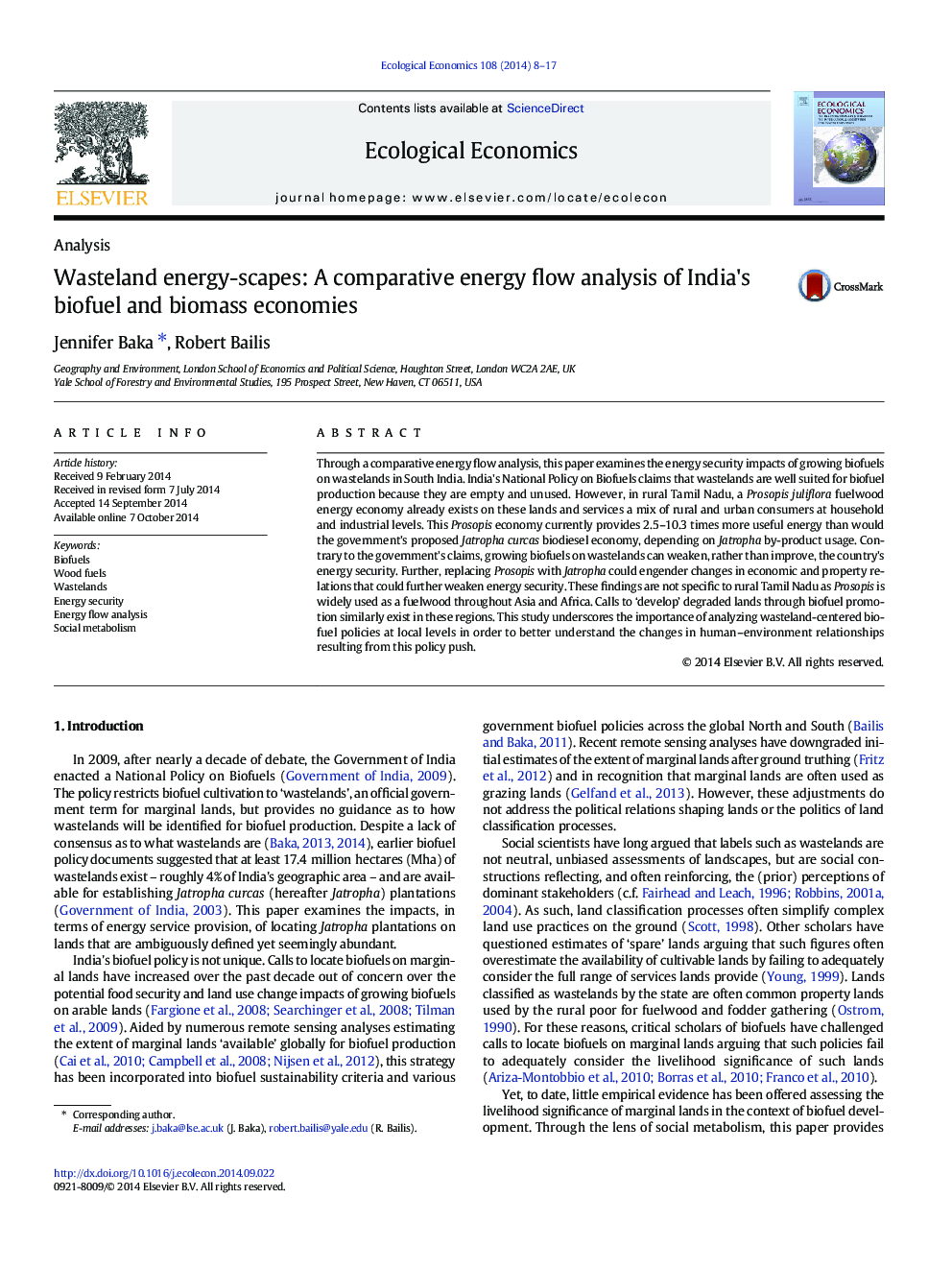| کد مقاله | کد نشریه | سال انتشار | مقاله انگلیسی | نسخه تمام متن |
|---|---|---|---|---|
| 5049570 | 1476371 | 2014 | 10 صفحه PDF | دانلود رایگان |

- India's Jatropha biofuel policy would replace a Prosopis wood fuel economy.
- We conduct a comparative energy flow analysis of these two economies.
- The Prosopis economy provides 2.5-10.3 times more useful energy than Jatropha.
- India's biofuel policy impacts energy security in unanticipated ways.
Through a comparative energy flow analysis, this paper examines the energy security impacts of growing biofuels on wastelands in South India. India's National Policy on Biofuels claims that wastelands are well suited for biofuel production because they are empty and unused. However, in rural Tamil Nadu, a Prosopis juliflora fuelwood energy economy already exists on these lands and services a mix of rural and urban consumers at household and industrial levels. This Prosopis economy currently provides 2.5-10.3 times more useful energy than would the government's proposed Jatropha curcas biodiesel economy, depending on Jatropha by-product usage. Contrary to the government's claims, growing biofuels on wastelands can weaken, rather than improve, the country's energy security. Further, replacing Prosopis with Jatropha could engender changes in economic and property relations that could further weaken energy security. These findings are not specific to rural Tamil Nadu as Prosopis is widely used as a fuelwood throughout Asia and Africa. Calls to 'develop' degraded lands through biofuel promotion similarly exist in these regions. This study underscores the importance of analyzing wasteland-centered biofuel policies at local levels in order to better understand the changes in human-environment relationships resulting from this policy push.
Journal: Ecological Economics - Volume 108, December 2014, Pages 8-17